DU Hongjian*, Stephen TAY, Justin YEOH, GENG Guoqing, Alexander LIN, GOH Yang Miang, Paul ONG, TAY Xin Yi, Mavian, and YAN Siyang
*corresponding author
College of Design and Engineering (CDE)
Hongjian and his colleagues share their experience of learning and implementing interdisciplinary teaching and learning approaches to enhance student learning in CDE.
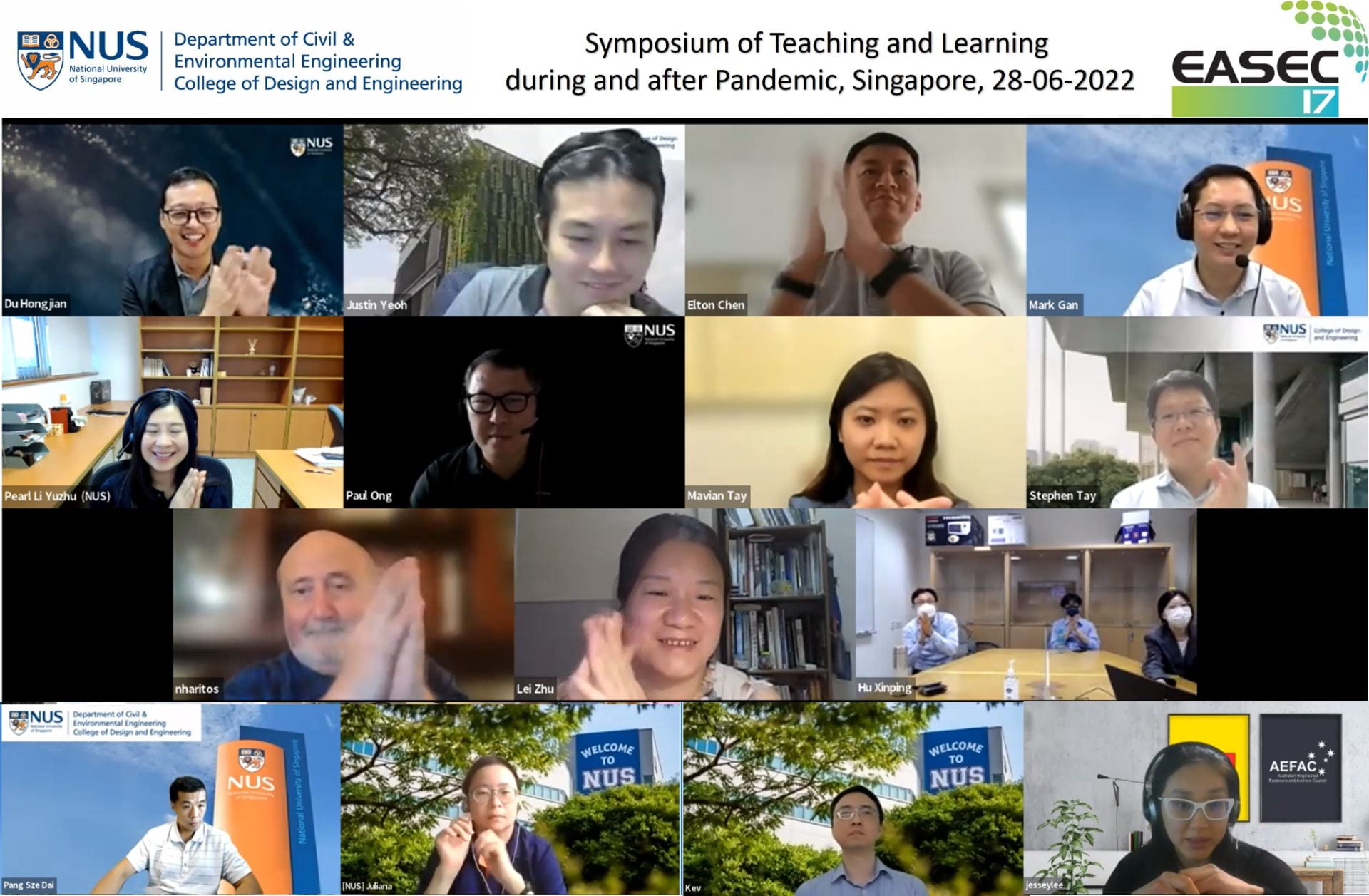 Educational symposium organised by the LC to foster cross-disciplinary collaborations
Educational symposium organised by the LC to foster cross-disciplinary collaborations
(photo provided by the corresponding author).
Du H. J., Tay, S. E. R., Yeoh, J., Geng, G., Lin, A., Goh Y. M., Ong, P., Tay, M. X. Y., & Yan S. (2023, May 29). Interdisciplinary education in the College of Design and Engineering (CDE): A learning community’s reflection. Teaching Connections. https://blog.nus.edu.sg/teachingconnections/2023/05/29/interdisciplinary-education-in-the-college-of-design-and-engineering-cde-a-learning-communitys-reflection/
In recent years, the National University of Singapore (NUS) has been transforming its educational model, moving towards a flexible and interdisciplinary curriculum. Interdisciplinary teaching and learning (ITL) merge disciplines to solve complex problems; a flexible and interdisciplinary curricula provide the advantages of enhancing adaptability and problem-solving skills, while also promoting collaboration and teamwork.
This transformation prepares NUS graduates to thrive in a fast-changing and unpredictable post-COVID world, as exemplified in an August 2021 press release, in which future students enrolling in the College of Design and Engineering (CDE) can engage in modules from both entities to gain industry-relevant skills for their professional development (“Two new colleges at NUS to deliver flexible, interdisciplinary education”, 2021). It is in this context that the Learning Community (LC) was formed, to support the University’s bold transition through the engagement of academics and students across CDE. The LC’s composition and background is summarised in Figure 1.
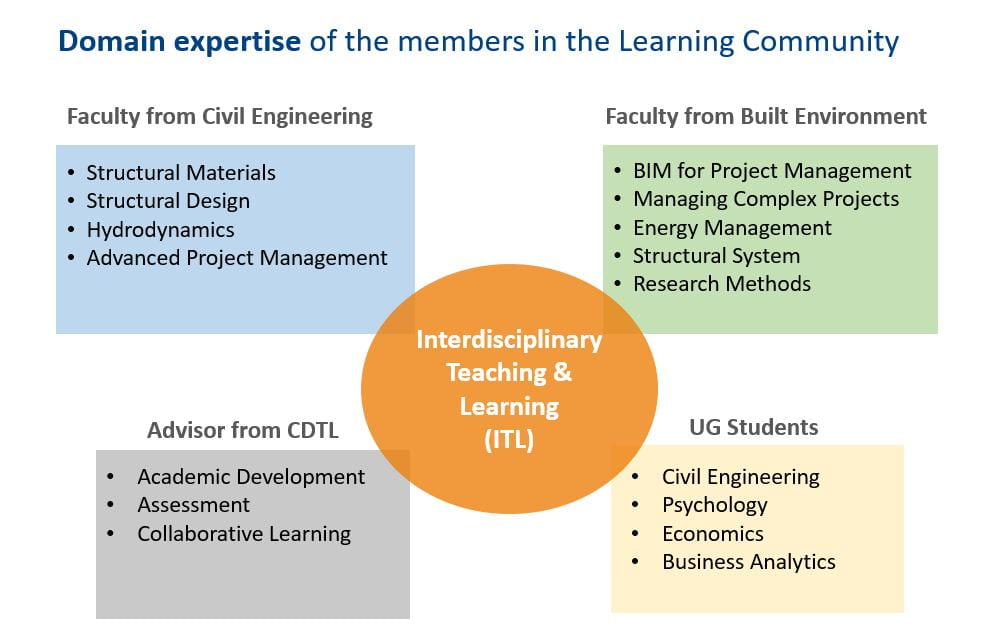
Figure 1. Background of members in the Learning Community (LC).
The LC activities started from May 2021 until Dec 2022 (summarised in Figure 2). We studied the book A Connected Curriculum for Higher Education (Fung, 2017), which was supplemented by cross-faculty peer reviews. Specifically, the Connected Curriculum framework was referenced. The LC members exchanged thoughts on the readings and discussed the applicability of various teaching pedagogies in monthly meetings. Subsequently, mind maps of ideas for interdisciplinary modules were created based on these discussions. The LC members also collaboratively helped one another refine these ideas through peer review.
The LC activities culminated in two events: an educational symposium to foster collaborations among NUS academics across different disciplines, and a workshop to disseminate the findings and LC’s experiences to the wider NUS community.
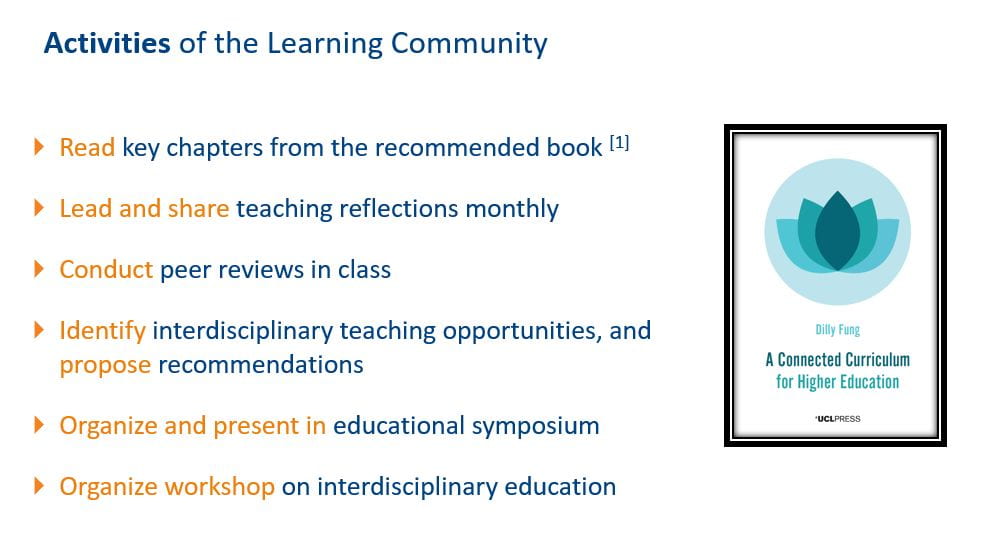
Figure 2. Main activities of the Learning Community (LC).
For the peer review, LC members from different CDE departments were paired up based on similar disciplinary backgrounds. After conducting the peer review for eight modules, we summarised the opportunities and challenges for ITL (Figure 3). The LC members agreed that there are many opportunities to add interdisciplinary elements, be it at the individual module’s level or at the programme level.
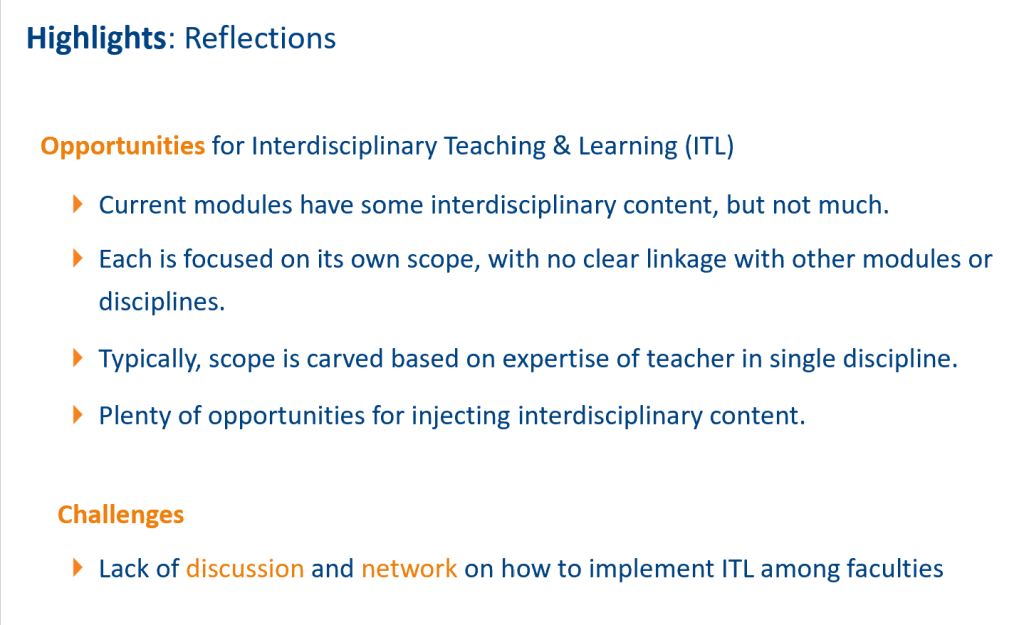
Figure 3. Reflection on opportunities and challenges for interdisciplinary teaching and learning (ITL).
Our LC also proposed a few strategies and recommendations for future implementations of interdisciplinary approaches in CDE and beyond (as listed in Figure 4).

Figure 4. Recommendations for ITL.
To share what we learnt from this LC project and bring more benefits to the NUS teaching and learning community in terms of interdisciplinary education, we organised a face-to-face workshop on interdisciplinary learning in 2022, with more than 50 attendees. This workshop has enriched knowledge in interdisciplinary education and provided a platform for colleagues to connect and collaborate on interdisciplinary education. We invited Professor Dilly Fung1 (LSE, UK) and Professor Khoo Teng Chye2 (Cities, NUS) as the keynote speakers. It was an inspiring event that generated much discussion and interaction amongst attendees. Prof. Fung discussed the essential skills and attitudes for colleagues and students to be engaged in ITL, and gave concrete examples of interdisciplinary courses and programmes in LSE and University College London (UCL), where she formerly taught. Meanwhile, Prof. Khoo introduced the NUS Cities Programme3, which aims to provide a multidisciplinary, open, and inclusive collaborative platform to solve one of the world’s greatest challenges: sustainable urbanisation.
The post-event survey suggested that participants responded positively to the workshop, which included the following feedback:
- “[L]lots of in-depth sharing of techniques derived from experience in teaching through a multi-disciplinary framework.” – CDE attendee
- “Very in-depth overview of the issues from both speakers.” – attendee from the College of Humanities and Science (CHS)
- “[The] Q&A part clears(sic) some of my confusion.” – CDE attendee
- “New interesting perspectives.” – attendee from the Yong Loo Lin School of Medicine (YLLSoM).
Watch the video interview with Professor Dilly Fung on interdisciplinary education.
Another important aspect of this LC is that it serves as a platform for young academics to get to know and work with colleagues from different disciplines. As a result, we as LC members not only see things through a different disciplinary lens, but also get the opportunity to embark on and build up collaborations on pedagogical research. For instance, LC members Du Hongjian and Stephen Tay co-authored one paper to explore the implementation of a novel teaching method in different disciplines (Du & Tay, 2022)4.
To the LC members, the biggest takeaway is that educators must be flexible and adaptable in their teaching approaches, whether assessment or instructional methods. In terms of applying what they learnt from the LC, the first author of this post introduced a design competition in his module which requires students to work in a team to design and fabricate a wind tower for clean energy. In the competition, students can draw upon knowledge and methods from other fields such as architecture, mechanical engineering, and material science. Professionals were invited to serve as judges in the final presentation to simulate the interdisciplinary scenario in the real world (see Figure 5 for an example of one student group’s design).
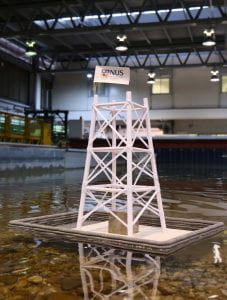
Figure 5. Example of one student group’s completed design of a water tower.
Students also gave very positive feedback on whether the design competition was helpful in enhancing their learning (Figure 6).
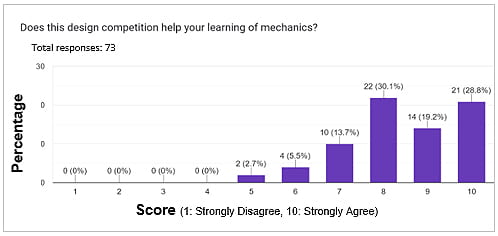
Figure 6. Results of survey conducted in CE2155 regarding the design competition.
In summary, this LC project has been running successfully. We studied the Connected Curriculum framework (Fung, 2017) and discussed the implementation of interdisciplinary education. The main activities and outcomes have been evidenced and circulated through the workshop and symposium we organised, and in our sharing with NUS colleagues (Du, 2022). We hope our experience as an LC and the recommendations shared in this post provide food for thought and trigger more action amongst the community support interdisciplinary education at NUS.
Acknowledgments
This study was funded by the Centre for Development of Teaching and Learning (CDTL)’s Teaching Enhancement Grant (TEG_ Learning Community Projects for AY2020/21. The authors wish to acknowledge the great help from Mark Gan, CDTL, who provided much insightful advice in our monthly meetings and during the preparation of the workshop. We are also grateful to Professors Dilly Fung and Khoo Teng Chye, both of whom made the workshop impactful and helpful to NUS colleagues. We also record our deep appreciation to Professor Wong Nyuk Hien (Department of the Built Environment, CDE) and Associate Professor Pang Sze Dai (Department of Civil and Environmental Engineering, NUS) for their generous support of this LC project.
Endnotes
- Professor Dilly Fung is a former Pro-Director (Vice President) for Education at the London School of Economics and Political Science (LSE). She is currently part time higher education consultant. Read more…
- Professor Khoo Teng Chye is Director, NUS Cities and Practice Professor with CDE. He was formerly the Executive Director for the Centre for Liveable Cities (CLC), Ministry of National Development (MND)(2010-2020), Singapore and continues to be a Fellow at CLC. Read more…
- NUS Cities is a university-wide, multi-disciplinary, open and inclusive collaborative platform hosted within CDE. This programme aims to foster a community for education, research, and advisory services with a core team of practitioners, academics, leaders, researchers, and students. Read more…
- The work was awarded the Best Paper Presentation during the Higher Education Campus Conference (HECC) in 2022.
References
Du H. J., & Tay, S. E. R. (2022). Using scenario-based student-generated questions to improve the learning of engineering mechanics: A case study in civil engineering [Paper presentation]. In Higher Education Campus Conference (HECC) 2022, 7-8 December, National University of Singapore. https://nus.edu.sg/cdtl/docs/default-source/engagement-docs/conferences/hecc2022/ebooklet.pdf.
Du H. J. (2022, December 2). Interdisciplinary Learning for Undergraduates in the College of Design and Engineering, NUS Cities Brown Bag Lunches, SDE 1, NUS.
Fung, D. (2017). A connected curriculum for higher education. UCL Press. https://doi.org/10.2307/j.ctt1qnw8nf.
Two new colleges at NUS to deliver flexible, interdisciplinary education more accessibly, and at greater scale. (2021, August 27). NUS News. https://news.nus.edu.sg/two-new-colleges-at-nus-to-deliver-flexible-interdisciplinary-education-more-accessibly-and-at-greater-scale/.
 |
DU Hongjian is a Senior Lecturer in the Department of Civil and Environmental Engineering (CEE), CDE, NUS, and is the principal facilitator of this LC. Hongjian is a passionate educator. He strives to provide a fruitful learning experience to his students in lecture theatres, laboratories, and online classrooms. He applies active and experiential learning techniques to his teaching, aiming to foster his students’ holistic development in critical thinking, problem-solving skills, interdisciplinary collaboration, etc. Hongjian is the corresponding author for this post, and can be reached at ceedhj@nus.edu.sg. |


